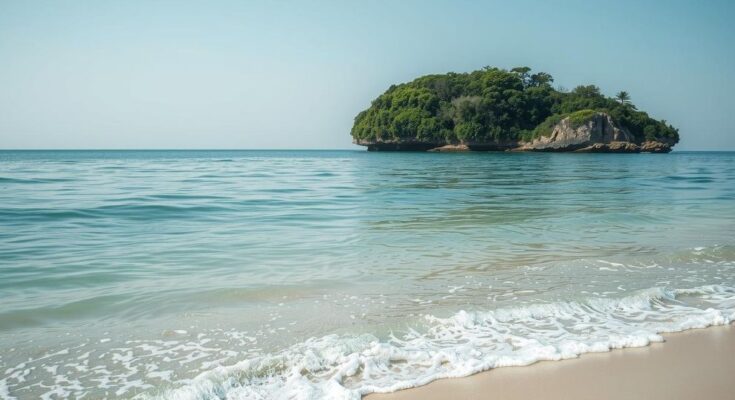Activists in Chuuk are pushing for independence from the Federated States of Micronesia amid concerns over U.S. dependence. Significant historical ties to colonial powers and the current political landscape influence this debate. Key figures advocate for self-governance to reclaim resource control and promote Chuuk’s cultural identity. The independence referendum has faced delays, highlighting the complexity of this issue.
The Chuuk islands, located in the Pacific Ocean, are part of the Federated States of Micronesia, an island nation allied with the United States. Despite a small population of approximately 113,000, Chuuk plays a significant role in controlling large areas of the Pacific. The U.S. provides substantial aid for administration, healthcare, and education in the region, fostering a lasting relationship between the two entities.
Former Chuuk State attorney general Sabino Asor has expressed concerns about the islands’ dependence on the U.S., suggesting this relationship limits local autonomy. Asor advocates for independence from the Federated States of Micronesia to negotiate directly with the U.S. about future agreements. However, he acknowledges that public opinion remains divided on this issue.
Recent developments have intensified discussions about Chuuk’s future, particularly under the current U.S. administration which seeks to reduce expenditures. Asor warns that the longstanding Compact of Free Association could be at risk. He notes that independence might open avenues for more advantageous agreements, potentially allowing for negotiations with both the U.S. and other global powers.
Historically, the Chuuk islands have experienced colonization by multiple powers, including Spain, Germany, and Japan. Post-World War II, they were governed by the U.S. as a trust territory until achieving independence in 1979. The Compact of Free Association has undergone renewals, with the latest revision occurring in 2023, binding both parties to specific commitments.
Johnny Meippen, a legal expert and politician, recognizes the benefits of remaining with the Federated States of Micronesia, but emphasizes the need for readiness for potential shifts in U.S. policy. If Chuuk becomes independent, its inhabitants would reclaim authority over surrounding waters and resources, better aligning their governance with cultural and economic priorities.
Asor adds that the quest for independence relates to preserving Chuuk’s cultural identity amid colonial histories. Pro-independence sentiments have persisted, yet a planned referendum on the matter has faced repeated postponements, with fears of unfavorable outcomes for the government.
Calls for independence are gaining traction, with key figures advocating for Chuuk’s unique needs to be acknowledged and addressed. The necessity for an independent political status is seen as crucial for both cultural preservation and economic development. The future of Chuuk depends on communal discussions regarding independence and its implications for the islands’ governance and identity.
In conclusion, the Chuuk islands are at a crossroads, weighing the benefits of independence against their historical reliance on the United States. With emerging voices advocating for sovereignty, discussions surrounding their future are intensifying. The debate hinges not only on economic considerations but also on the preservation of cultural identity and enfranchisement from past colonial influences.
Original Source: www.dw.com




